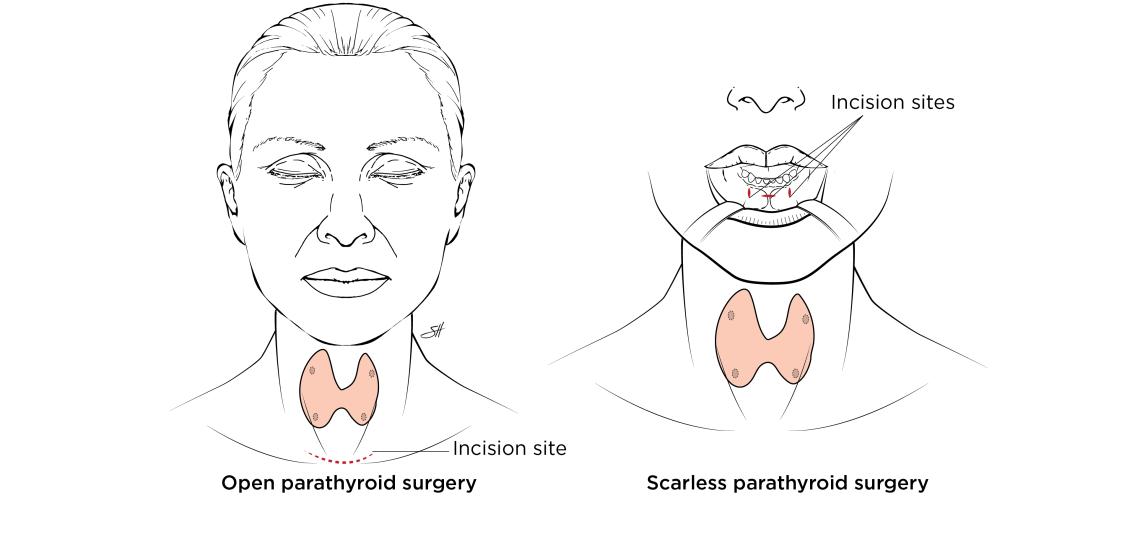In spite of their name, the parathyroid glands are only related to the thyroid by their location in the neck, next to and behind the thyroid. The parathyroids are four small glands only 1/4 of an inch in size, which produce parathyroid hormone. This hormone regulates calcium and phosphate levels in the blood, keeping them in healthy balance. However, if one or more of these glands grow too big, they can produce too much parathyroid hormone and create serious problems.
What are Parathyroid Glands?
Parathyroid hormone increases calcium in the blood by:
- Taking calcium out of the bone
- Changing the way calcium is processed by the kidneys
- Increasing uptake of calcium by the intestines
Too much parathyroid hormone results in:
- Thin, weak bones
- Kidney stones
- Abdominal cramping, pain and/or constipation
What is Parathyroid Surgery?
Parathyroidectomy is surgery to remove parathyroid tumors or the parathyroid glands through a small 1- to 2-inch surgical cut on your neck. You will receive general anesthesia (asleep and pain-free) for this surgery, which may last from one to three hours.
Types of Parathyroid Surgery
Open
Open parathyroidectomy is the standard removal of one or more of the four parathyroid glands in the neck.
Scarless
Transoral thyroidectomy or transoral vestibular approach (TOVA) allows for the safe and total removal of the thyroid or parathyroid glands with no external scarring to the neck. Of all “scarless” thyroid surgeries, the transoral technique is the only one that is truly scarless. Although other types of thyroid and parathyroid techniques may not leave a scar on the neck, they do leave a scar at the alternative incision point, the armpit, hairline or nipple.
Advantages of Transoral Surgery
Benefits of the TOVA are three-fold: It preserves the natural appearance of the neck, leaves no external reminder of the operation and provides a quick and easy recovery.
On average, expect a one to two week recovery period. Occasionally, some patients report even longer periods to completely recover. This depends on the type of surgery and your overall health and activity level before surgery. Remember that recovering from surgery takes a lot of your body’s protein and energy to do so. You may tire easily during your recovery, but proper nutrition and exercise will help you to get stronger.








 Credit
Credit
